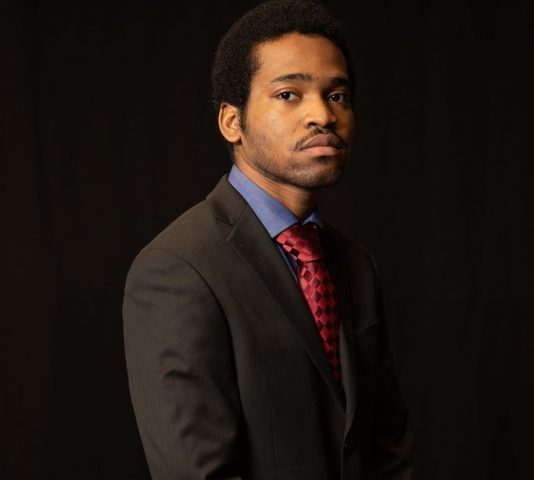If there is anything the pandemic has taught us, it is the importance of partnerships. The importance of a solid US-Africa partnership. This was highlighted recently at the New US/Africa Relations webinar hosted by the American Business Council Nigeria in partnership with the US Chamber of Commerce, AmCham Ghana, AmCham Kenya and AmCham South Africa with high level U.S. government officials in attendance.
More importantly, the webinar conversation also discussed how a potential US-Africa partnership can expand economic opportunities in the technology, digital and creative sectors, which are dominated by Africa’s youth population.
Currently, technology is slowly but surely playing a significant role in African countries. According to Brookings.edu, the effects of mobile technology penetration has generated 1.7 million jobs and greatly impacted the continent’s economy.
In Ghana, the growth of technology has taken its course in the country – with President Nana Addo Dankwa Akufo-Addo pledging a minimum 1 percent of Ghana’s GDP toward technology.
This number is projected to rise to 2.5% of Ghana’s GDP in the future. The political will to drive technological growth has in turn led to many outstanding projects spurred by technology: such as the Ghana Card – the first nationally distributed electronic ID card, as well as the mobile money interoperability system that allows Ghanaians to transfer money from one mobile wallet to another across the globe.
Apart from projects of the Ghanaian government, there have been significant strides in the health sector from creatives in the country which could attract investment and partnership from the US. An example is Gregory Rockson, CEO of mPharma. Rockson plans on using his company to build a large pharmaceutical database to assist the facilitation of drug supply on the continent.
Rockson, a Ghanaian from Tema, established his first pilot platform – which helped over 1,000 patients to receive their medical prescriptions in Zambia – through an online application; and he established a system for tracking drugs as well as a disease surveillance system to monitor disease trends and study risk factors, with the sole intention of targetting public health resources.
Currently, mPharma has on-going operations in Ghana, Kenya, Nigeria, Rwanda and Zambia, while also distributing over a million drugs and partnering with over 300 pharmacies on the continent, according to techcrunch.com. In March of 2021, mPharma expanded to Ethiopia and partnered with Belayab Pharmaceuticals on the multi-programme, which helps customers to get discounted and improved financing options that will help in easing access to medicine.
In the larger African context, there have been several collaborations between US companies and African businesses. An example would be the new initiative by Google, which recently allocated a total of US$6million to support African founders and entrepreneurs.
The US$6million was spilt into two – US$3million for the Black Founders Fund (BFF), a programme that will have 50 African startups and receive cheques between US$50k – US$100k, according to techpoint Africa; and another US$3million for a Google.org-backed grant for female entrepreneurs.
Another American company, Paypal, partnered up with Flutterwave, a Nigerian fintech company to allow African-based merchants to receive money from Paypal customers globally. This is a big step forward for e-commerce on the African continent. According to the press release, the partnership with Flutterwave and Paypal will not only help connect African SMEs with global merchants, but also benefit 377 million Paypal users globally.
Ravi Suchak, Vice President-Public Affairs – EMEA, American Tower Corporation, spoke highly of the growing ICT sector at the webinar and what benefits it could have for the future of US-Africa partnerships. “Africa’s expanding ICT sector presents the new U.S. Administration with an unprecedented opportunity to strengthen U.S. – African commercial ties,” Suchak said.
In his words, leveraging this opportunity will require a comprehensive strategy for public and private investment, trade and development in Africa that includes additional support to U.S. companies doing business on the continent, and increased capacity building as well as development training with key local stakeholders to help develop trust and foster mutual understanding in common areas of interest.
American Tower encourages the new administration to support Africa’s efforts to accelerate the roll-out of telecommunications infrastructure, expand broadband connectivity, and boost digital transformation.
Overall, the head-start being made by some American companies to bolster US-Africa partnerships in the tech and creative sector has been encouraging. Africa’s digital economy is expected to grow to a total US$180billion by 2025 and will contribute 5.2% of the continent’s GDP, according to The Exchange; and this can be accelerated with the help of investment and partnerships from U.S. companies in the tech industry.
Ghana, as well as the rest of Africa, is open for business; and the future of technology can help advance the continent and create more opportunities for the youth.
>>>the writer is a freelance journalist, a graduate of George Washington University. He is currently a graduate student studying journalism in Georgetown University DC, manages social media account for a number of personalities and consults for Corporate Council on Africa. He can be reached on [email protected]










